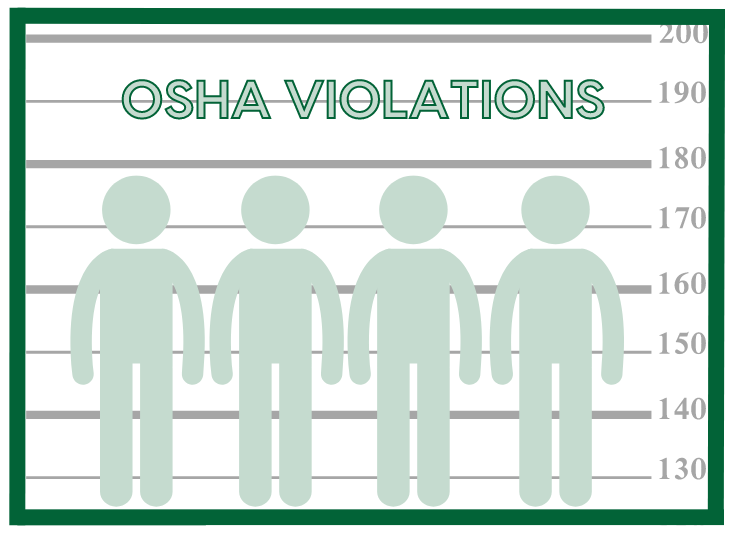5 Differences Between California and Federal RCRA Waste Laws
Enforcing laws and regulations in the United States involves a balance between the federal government and state governments. While individual state waste laws cannot be any less stringent than the Federal Resource Conservation and Recovery Act (RCRA) when it comes to hazardous waste management, states can have more restrictive standards than the federal government. As a result, certain wastes that are not classified as solid or hazardous waste under the Federal RCRA program, may be classified as regulated materials or wastes under a state's program.
In California, the Department of Toxic Substances Control (DTSC) of the California Environmental Protection Agency (Cal/EPA) oversees and enforces hazardous waste disposal laws in the state. The Federal 40 CFR 261 requirements are included within California's Title 22, which means that everything that is a RCRA hazardous waste is also a California hazardous waste. While federal laws offer a solid framework for state RCRA programs, California's hazardous waste definition frequently differs in many ways, including:
Waste oil and materials containing or contaminated with waste oil are typically regulated as hazardous wastes in California, even if they do not exhibit any of the hazardous waste characteristics. The phrase "used oil" refers to any oil that has been refined from crude oil or any synthetic oil that has been used and is polluted with physical or chemical impurities as a result of that usage.
2. M-Listed Wastes (Mercury-Containing Wastes)M-listed wastes include thermostats and thermometers, as well as smaller devices used in appliances and manufacturing equipment, such as mercury switches and relays. Mercury-containing industrial wastes must typically be managed in accordance with California's hazardous waste management regulations. Certain mercury-containing items that are disposed of might be classified as "universal waste," which, while still considered "hazardous waste," they can be managed under a less stringent set of requirements, provided they are recycled properly.
3. Managing “Empty” Hazardous Waste Containers
Because contamination at drum reconditioning facilities was often caused by mishandling hazardous material residuals that were removed from "empty" containers, California's definition of an "empty container" is more strict than the federal definition. California's definition includes a "drip dry" standard. These rules define management procedures that, if followed, exempt "empty" containers from further hazardous waste requirements. These restrictions apply only to containers that formerly held hazardous goods or hazardous wastes. The regulations are found in Title 22, California Code of Regulations, section 66261.7.
4. Mixtures of RCRA Wastes
When solid waste is mixed with a listed hazardous waste, the entire mixture is classified as that listed hazardous waste, according to RCRA. However, in other states, if the hazardous waste was exclusively classified for ignitability, corrosivity, or reactivity and the resultant combination no longer displays that characteristic, then federal laws exclude this mixture as a hazardous waste. In California, mixtures of nonRCRA and RCRA wastes are still considered hazardous wastes.
5. Universal WasteMany types of consumer product, or e-waste, including old televisions, batteries, laptops, fluorescent lamps, mobile phones, fax machines, copiers, stereos, and more, contain hazardous substances and cannot be thrown away with municipal refuse in California. California’s more rigorous universal waste laws aim to recycle many of these materials and prevent harmful chemicals from leaching into the environment.
RCRA standards do not identify many of these wastes, notably e-waste, that must be managed as hazardous waste in California. As a result, California's compliance costs are significantly greater than in states where RCRA wastes alone make up what is listed as hazardous waste.
Our California waste specialists can help you navigate the complex regulations that many waste generators are faced with, saving you time and money, and maintaining environmental compliance. Click below to contact an expert.





.png)
